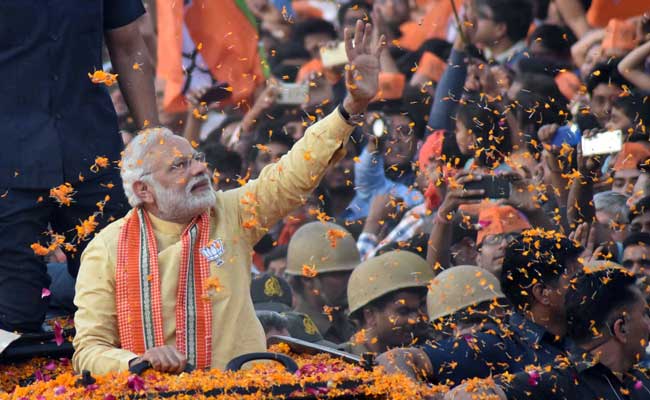The majority of surveys indicate that the Bharatiya Janata Party (BJP), which is now in power in India, is headed in a positive direction regarding the Lok Sabha elections that will take place in 2024. It is largely anticipated by analysts that a decisive mandate for the existing government would both secure the continuity of policies and boost investor confidence in the stock market.
Tanvee Gupta Jain, an economist at UBS India, is of the opinion that political stability would most likely result in policy continuity, which would be a positive sign for market sentiment.
“Given India’s growing footprint in global value chains, we would expect further progress towards digitalization and continued policy push toward manufacturing and exports,” Jain wrote in a study. “We would expect this to happen during a potential third term for Modi.”
While UBS does not make any predictions on the outcome of the election, it did highlight that recent opinion surveys continue to indicate that the Bharatiya Janata Party (BJP) would perform well in the general election. Furthermore, according to these polls, Prime Minister Narendra Modi continues to be the most popular leader in India.
The recent performance of the BJP in assembly elections implies that the following factors contributed to the party’s success: a) the ‘Modi factor’; b) the perception of the work done; and c) the implementation of welfare programs. According to the research by UBS, the administration has refrained from adopting a populist stance and continues to pursue the road of budget consolidation in the run-up to the election in 2024.
Policy reforms under different election scenarios
There are three potential outcomes that are considered by UBS: a) a single-party majority for the BJP; b) a coalition dominated by the BJP; and c) a weak coalition led by the INDIA alliance. The first two scenarios appear to be largely priced in by the market, according to the company’s interactions with investors and valuation multiples.
When it comes to the first scenario, UBS anticipates that the government will be concentrating on maintaining policy continuity, which is a positive sign for the sentiment of businesses and the much-anticipated rebound of private corporate capital expenditures.
There have been claims in the media that the Bharatiya Janata Party (BJP) appears to be already working on a 100-day plan for initial steps to be done once the new government is formed in order to ensure the rapid execution of the ‘Viksit Bharat 2047’ (Developed India) plan. In addition, the implementation of supply-side reforms might ramp up, which would include a transition to renewable energy, an increase in investment on infrastructure (both digital and physical), a push for manufacturing, and other specific policy efforts (towards youth, the poor, women, and farmers), according to the report.
With the BJP being the single-largest party, Jain anticipates that fiscal prudence will be maintained, infrastructure will be given priority, the push toward digitalization will accelerate, and the push toward disinvestment policy will continue. This is in reference to the impact that different reforms will have under different government scenarios.
It is also possible that this scenario will further enhance foreign direct investment (FDI) and public-private partnership (PLI) initiatives, while at the same time providing assistance for the rural sector by placing a greater emphasis on structural changes. Additionally, UBS anticipates that the implementation of the Uniform Civil Code would be a priority, and that there may be an additional attempt to introduce the Land Acquisition Bill.
In the second scenario, where a coalition led by the BJP is anticipated, UBS believes that the momentum for reform could remain essentially comparable. However, several more stringent reforms, such as disinvestment, the Land Bill, and the Uniform Civil Code, may not see much development and/or are likely to be put on hold. According to the report, however, investors would be less concerned about the level of comfort they feel regarding budgetary discipline in this scenario.
UBS believes that the economic policy approach might be generally aligned in the third scenario, which involves a weak coalition led by the INDIA alliance. However, the markets may have concerns regarding fiscal discipline, and the government may be less decisive, which could result in delays in the implementation of supply-side measures.
According to UBS, there is also the possibility that the recovery of private company capital expenditures could be delayed due to a decrease in business confidence brought on by an unexpected political outcome.
Mixed rural recovery
Over the course of the past year, the recovery in rural demand has been fairly inconsistent due to the presence of weather-related uncertainties, such as El Niño, a lack of wage increase in rural areas, and the implementation of supply-side policies by the government in order to manage inflation.
To the contrary, the government of Modi did not make any significant announcements regarding pro-rural populist policies in the run-up to the elections in 2024 in order to attract votes. The government instead focused on inclusive growth (partially to cushion the shock of the epidemic), with expenditures on rural-oriented schemes (including drinking water, employment support, housing, and rural roads) increasing at a compound annual growth rate of sixteen percent for the fiscal year 2019–2024, according to the UBS analysis.










